
Dear CTRMS Member,
The CTRMS Council is pleased to announce the start of the 2025 CTRMS Council Election. We encourage you to participate in the election to help determine your representatives for the CTRMS 2025-2029 term.
To participate in the election, you can vote online.
Sincerely,
Maria Koulmanda
CTRMS Secretary/Treasurer
Deadline to vote:
Friday June 20, 2025 at 23:59 PM EDT
- Log in to your account
- Prior to accessing the ballot you may view photos and biographical sketches of each nominee on this page.
- Click the button below and complete your ballot according to instructions
Nominees
President-Elect (choose 1)
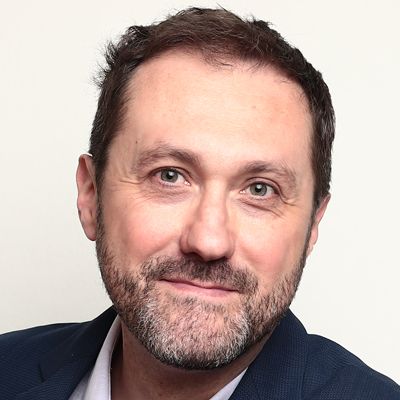

Roberto Gramignoli - Italy
Roberto Gramignoli is working as an Associate Professor at Karolinska Institutet (Sweden) and was recently appointed as Head of Unit for Cell Therapies at the Gaslini Hospital (Italy). He specialized in Medical Genetics (Univ. of Milan) and Advanced Therapy Medicinal Products (Univ of Granada/ Andalusian Network), and holds a PhD in Molecular and Translational Medicine. During his work with Prof. Stephen Strom, a pioneer in liver cell-based therapies, they identified roadblocks limiting clinical Hepatocyte Transplantation and proposed new solutions for, leading to approval by the Regulatory Agencies (in US and Scandinavia) for isolation and clinical transplantation. Due to the paucity of human hepatocytes, they investigated alternative sources, such as pluripotent or multipotent stem cells. Thus, Roberto has recently focused his attention on perinatal cells. Such advanced medical treatments led Roberto to fund a company (Tandem Biotherapeutics) with licensed technology for mass production of this new therapeutic tool. Roberto has served as Councilor at the CTRMS for the past 6 years and served the Society in several activities, including scientific program organization and revision.
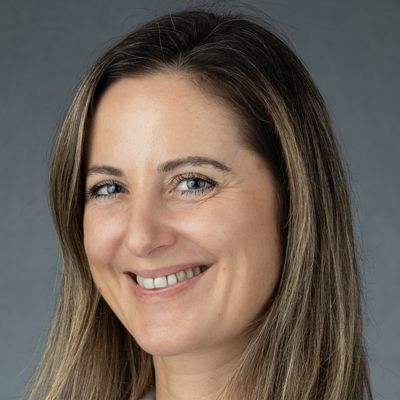

Alice Tomei - United States
Dr. Tomei is the Miami Engineering Career Development Associate Professor with tenure in Biomedical Engineering at the University of Miami, with secondary appointments in the Departments of Surgery, and of Microbiology and Immunology.
She obtained her M.S. in Materials Engineering from the Politecnico of Milan (Italy) in 2004, and her Ph.D. in Bioengineering and Biotechnology from the Ecole Polytechnique Fédérale de Lausanne (EPFL, Switzerland) in 2008.
Dr. Tomei currently directs the Islet Immunoengineering Lab at the Diabetes Research Institute (DRI) of the University of Miami Miller School of Medicine. Applying her unique background in bioengineering and immunology, Dr. Tomei develops novel immunoengineering platforms to prevent rejection after islet transplantation and to promote antigen-specific immunomodulation for the treatment of type 1 diabetes. Her research has received support from the National Institutes of Health (NIH), Breakthrough T1D Semma Therapeutics, and Sernova Corp (H-index: 21; citations: 2,903). She has mentored 5 postdocs, 10 Ph.D. students, 21 M.S. students, and 32 undergraduate students, in the fields of immune and tissue engineering.
Dr. Tomei is a standing member of the NIH BMBI study section. She currently serves as Co-Chair of the IPITA educational committee and as a CTRMS Councilor.
She was awarded the JDRF Career Development Award in 2016, the Eliahu I. Jury Early Career Research Award in 2016, the Alexander Orr Excellence in Teaching Award in 2018, the Johnson A. Edosomwan Researcher of the Year Award in 2019 and 2024, and the Young Innovator in Cellular and Molecular Bioengineering Award in 2020.
Treasurer (choose 1)
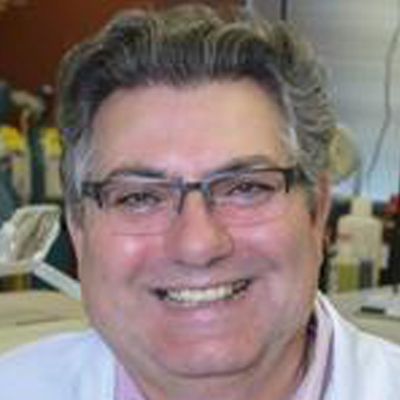

Klearchos Papas - United States
Dr. Papas holds B.Ch.E., M.S., and Ph.D. in Chemical Engineering from the Georgia Institute of Technology with a focus on tissue engineering and completed his postdoc training at Novartis Pharmaceuticals.
Prior to joining the University of Arizona in 2011, Dr. Papas served on the faculty at the University of Minnesota (2003-2011), where he held leadership positions as associate director of the Islet Transplant Program, director of Islet Processing Research and Development and director of the Islet Quality Assurance Core in the Schulze Diabetes Institute. He has also held joint research positions at the Massachusetts Institute of Technology in the Department of Chemical Engineering, the Juvenile Diabetes Research Foundation (JDRF) Center for Islet Transplantation at Harvard Medical School and the Howard Hughes Medical Institute at Yale University (1999-2003).
Dr. Papas is currently Past-President (2023–2025), has served as President (2021–2023), and has been on the council of the Cell Transplant and Regenerative Medicine Society (CTRMS, formerly Cell Transplantation Society) since 2011. He also serves on the Editorial Board of Cell Transplantation “The Regenerative Medicine Journal”, 2009 - 2023 Editorial Board Member; 2023 – Present Section Editor: Islets and Other Endocrines. Served on the Editorial Board of Frontiers in Biotechnology and Bioengineering: Biomaterials: 2013 – 2022 Editorial Board Member; 2022 – Present Section Editor. Serves on the Editorial Board of CellR4, Xenotransplantation, Cell Medicine.
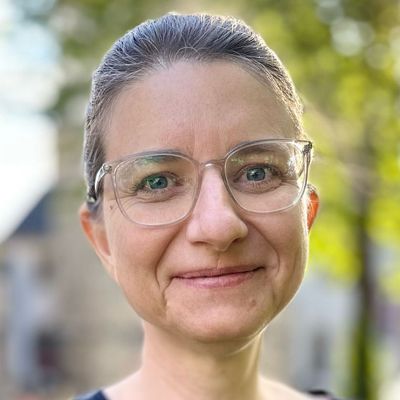

Peggy Stock - Germany
Dr. Peggy Stock is a senior researcher in the Experimental Hepatobiliary Surgery group at the University of Leipzig Medical Center, Germany. Dr. Stock studied Biology at Martin Luther University Halle-Wittenberg and holds a Ph.D. in Molecular Hepatology.
Her research focuses on liver regeneration, including age-dependent liver repopulation and the use of mesenchymal stromal cells differentiated into hepatocyte-like cells. Additional work addresses non-invasive imaging of transplanted cells, cryopreservation of hepatocytes, and the development of 3D culture systems for regenerative applications. Recently, her work has expanded to include simulation-based donor organ assessment, applying continuum-biomechanical modeling to predict ischemia-reperfusion injury and support clinical decision-making for marginal grafts.
Dr. Peggy Stock has been a member of the CTRMS Council since 2017 and chairs the Young Investigator Committee since 2020, coordinating activities for early-career scientists and contributing to program development within the society.
Her experience in financial planning began during her studies and includes roles in student organizations, funding associations, and society-related activities. This includes ongoing responsibility for budget management in various academic and non-profit settings.
Dr. Stock’s activities reflect a balanced combination of scientific, administrative, and budgetary responsibilities in both research and professional society contexts.
Secretary (running unopposed)
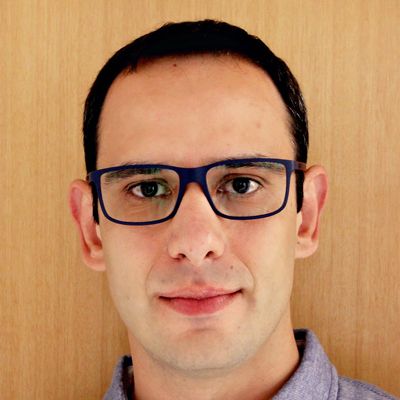

Fabio Marongiu - Italy
Dr. Fabio Marongiu is an Associate Professor of General Pathology at the University of Cagliari, Department of Biomedical Sciences. He earned his Master’s degree in Biological Sciences in 2003 and a Ph.D. in Chemotherapy of Viral Infections, both awarded with highest honors.
A key milestone in his career was his training in Pittsburgh under Dr. Stephen Strom, a leading figure in hepatic regenerative medicine. There, Dr. Marongiu developed deep expertise in liver repopulation and hepatocyte transplantation—work that continues to shape his research today. His current focus lies in regenerative medicine, particularly the use of human amniotic epithelial cells (hAECs) for liver regeneration and treatment of degenerative retinal conditions.
His research also addresses the interplay between tissue microenvironment, clonal evolution, and aging in carcinogenesis, with the goal of understanding how these factors influence cancer initiation and progression. He has co-authored numerous peer-reviewed publications in high-impact journals, including Nature, Molecular Oncology, and British Journal of Cancer.
Dr. Marongiu plays an active role in the international scientific community. He serves as Secretary of the International Placenta Stem Cell Society (IPLASS), promoting collaborative research in placental-derived regenerative therapies. He has been a member of the Cell Transplant and Regenerative Medicine Society (CTRMS) since 2007, serving on its Communication Committee since 2015 and as a Board Member since 2021.
Councilor - Asia (Running unopposed)
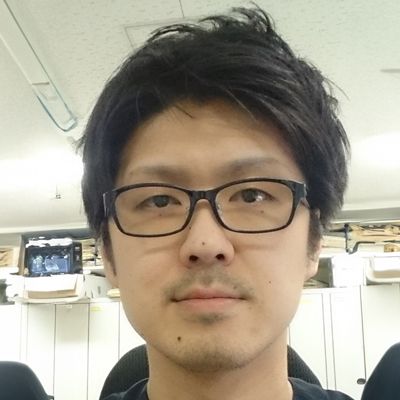

Kazuaki Tokodai, Japan
Dr. Kazuaki Tokodai is an Associate Professor in the Department of Organ Transplantation at Tohoku University Hospital in Sendai, Japan. He is a transplant surgeon and clinical researcher specializing in liver, kidney, and pancreas transplantation, as well as regenerative medicine. His recent work focuses on developing novel cell-based therapies using human amniotic epithelial cells, aiming to integrate regenerative approaches into standard transplant care. Dr. Tokodai has led translational research projects investigating immune modulation and coagulation responses following intraportal stem cell transplantation. He also has research experience at Karolinska Institutet in Sweden, where he participated in collaborative studies on transplantation immunology and surgical innovation. In addition to his academic contributions, Dr. Tokodai is involved in education and surgical training for the next generation of transplant professionals in Japan. With his clinical expertise, research background, and international engagement, he is committed to advancing the mission of CTRMS and promoting collaboration across Asia and beyond.
Councilor - Europe/Middle East/Africa (Choose 1)
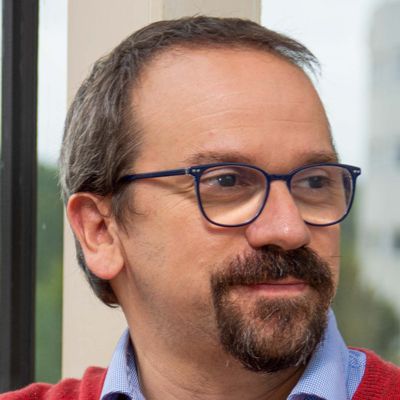

Lorenzo Moroni, The Netherlands
Prof. Dr. Lorenzo Moroni received his Ph.D. cum laude in 2006 at University of Twente on 3D scaffolds for osteochondral regeneration, for which he was awarded the European doctorate award in Biomaterials and Tissue Engineering from the European Society of Biomaterials (ESB). Since 2014 he works at Maastricht University, where he is a founding member of the MERLN Institute for Technology-Inspired Regenerative Medicine. In 2016, he became full professor in biofabrication for regenerative medicine. Since 2019, he is chair of the Complex Tissue Regeneration department. He was vice-director of MERLN from 2019 till 2022. Since 2022, he is director of MERLN. In 2014, he received the Jean Leray award from the ESB and an ERC starting grant. In 2016, he also received the Robert Brown Award from TERMIS. In 2017, he was elected as faculty of the Young Academy of Europe and in the top 100 Italian scientists within 40 worldwide by the European Institute of Italian Culture. He was elected at the European Young Academy of Science in 2017, and at the European Academy of Science in 2022. He received the Merck Materials Science lecture award in 2023, the mid-term career TERMIS award in 2024. He was also elected in 2024 as Fellow of Biomaterials Science and Engineering as well as Fellow of Tissue Engineering and Regenerative Medicine. He already guided more than 20 PhD students through their theses as (co-)promoter, and 15 postdocs through their next career steps as professional leaders either in academia or industry. His research group interests aim at developing biofabrication technologies to generate libraries of 3D biological constructs and scaffolds able to control cell fate, with applications spanning from skeletal to vascular, neural, and organ regeneration. From his research efforts, 3 products have already reached commercial translation.
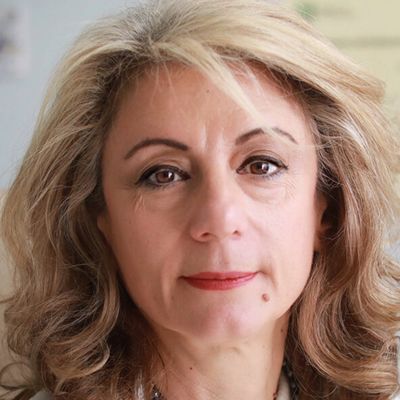

Graziella Pellegrini, Italy
Graziella Pellegrini is Full Professor at the University of Modena and Reggio Emilia and Cell Therapy Coordinator at the Centre for Regenerative Medicine. She was co-founder of Holostem Terapie Avanzate S.r.l. She has two Master Degrees in Chemistry and Pharmaceutical Technologies and in Pharmacy at the University of Genova.
She was one of the two inventors of the technology for culture and transplantation of limbal stem cells for the treatment of blindness due to LSCD; she obtained the orphan drug designation and European registration of the therapy at European Medicine Agency. Prof. Pellegrini developed translational medicine protocols for third-degree burns, depigmentation disorders and phase I clinical trial on gene therapy of epidermolysis bullosa. She was working on oral mucosa and urethra, airway tissue reconstruction and full cornea TE.
Author of patents, book chapters and international peer reviewed publications in the major international peer-review journals, as New England Journal of Medicine, Nature, Lancet, she was invited speaker or chairman in over 250 major scientific meetings all over the world.
She is founding member of the International Ocular Surface Society, member of major scientific societies and international committees, awarded by ISSCR, Termis EU, Italian government, Department of international Trade, Louis Jeantet-Collen Prize, FEBS award, San Silvestro Academy, and Foundation Gabriella Fabbrocini.
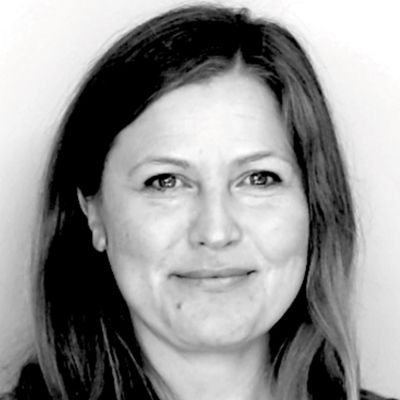

Janine Scholefield, South Africa
After completing her PhD in Human Genetics at the University of Cape Town (UCT), Janine Scholefield spent three years as a Nuffield Medical Fellow at the University of Oxford. Since returning to South Africa she has specialised in cellular modelling of disease by establishing induced pluripotent stem cell research in the country. Her research focuses on developing physiologically relevant cellular models of disease combining genome engineering with iPSCs derived from individuals from the genetically diverse African diaspora. Her primary aim to ensure genetically African cellular tools are embedded in global research and development pipelines, and is particularly driven by promoting African research and its scientists by building collaborative networks from within the continent across the globe.
She is the Research Group Leader of the Bioengineering and Integrated Genomics group at the Council for Scientific and Industrial Research in South Africa, and holds honorary lectureship positions in the Department of Human Biology at UCT, and in the Department of Human Genetics at the University of the Witwatersrand. In addition, she is the Editor-in-Chief for the Springer Nature journal Gene Therapy.
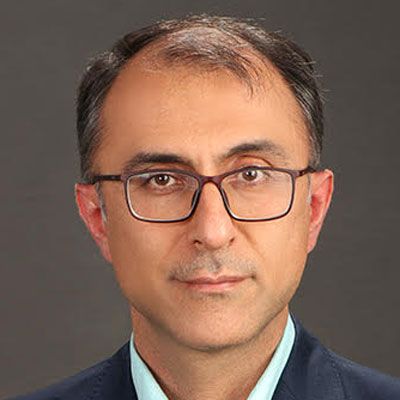

Massoud Vosough, Iran
Dr. Massoud Vosough is currently Head of Regenerative Medicine Department at Royan Institute for Stem Cell Biology, in Iran. He has long term experience in stem cell differentiation and transplantation. He supervised clinical trials using umbilical cord stem cells and worked extensively with human hepatocytes and iPS at Karolinska Institutet. He has large experience as teacher and mentor, and he is highly motivated and experienced in cell transplantation and regenerative medicine.
Councilor - North America (Choose 3)
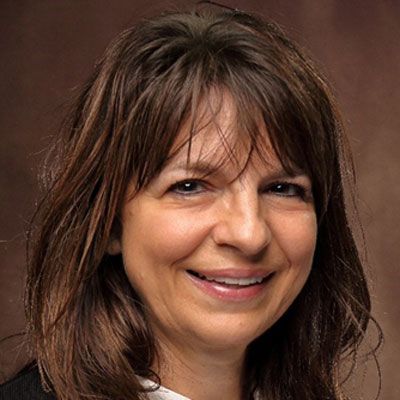

Julie Allickson, United States
Julie G. Allickson, Ph.D., leads the next phase of development of the Center for Regenerative Biotherapeutics as it delivers on innovations that cure, connect and transform patient care in alignment with Mayo Clinic's 2030 vision.
Dr. Allickson joined Mayo Clinic from Wake Forest Institute for Regenerative Medicine at Wake Forest School of Medicine, where she was the chief manufacturing development center officer.
An experienced scientist with regulatory expertise, she has more than 30 years of experience in clinical translation of cellular therapies and regenerative medicine products, including business management, board directorship experience, and knowledge of regulatory affairs, strategic planning, project management and team building.
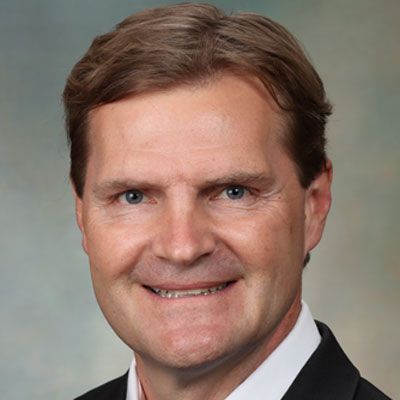

David Lott, United States
David G. Lott, M.D. holds the academic rank of Professor of Otolaryngology at Mayo Clinic College of Medicine and Science. He served as the Associate Director of the Mayo Clinic Center for Regenerative Biotherapeutics for 8 years. He is faculty for both the Clinical & Translational Science and Regenerative Sciences tracks within the Mayo Clinic Graduate School of Biomedical Sciences. In addition, he is the Director of the Head and Neck Regenerative Medicine and Transplantation Program at Mayo Clinic. The primary goal of the lab is to establish safe and effective clinical translation of regenerative medicine technology. The lab is initiating an FDA-approved human clinical trial to evaluate the efficacy of the tissue-engineered technologies for laryngeal reconstruction.
Dr. Lott initiated the first larynx transplant clinical trial. The efforts of this program have resulted in the world’s first total larynx transplant in the setting of active cancer. He and his investigative team continue to study alternative methods to circumvent immunosuppression using regenerative medicine technologies and immunotherapy.
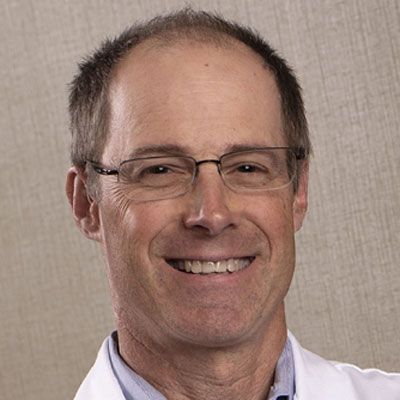

John Odorico, United States
Jon S. Odorico, MD, FACS, FAST is the Director of the Pancreas and Islet Cell Transplantation Programs and Professor in the Department of Surgery, Division of Organ Transplantation at the University of Wisconsin-Madison School of Medicine and Public Health and UW Health Transplant Center. This is one of the largest pancreas transplant programs in the world. He received a BS in Chemistry from Duke University, and MD from New York University School of Medicine. He completed General Surgery training as well as a post-doctoral research fellowship, at the University of Pennsylvania and Abdominal Organ Transplant Fellowship at University of Wisconsin. Dr. Odorico performs pancreas, islet and kidney transplants. Islet transplants include autoislets and stem cell-derived islets. He has an active, extramurally funded research laboratory that focuses on beta cell differentiation from pluripotent stem cells. He has previously served as President of IPITA and Chair of the UNOS Pancreas Committee. He is also the scientific co-founder of Regenerative Medical Solutions, Inc., and directs the Human Islet Core at the University of Wisconsin, funded through the Integrated Islet Distribution Program and NIDDK.
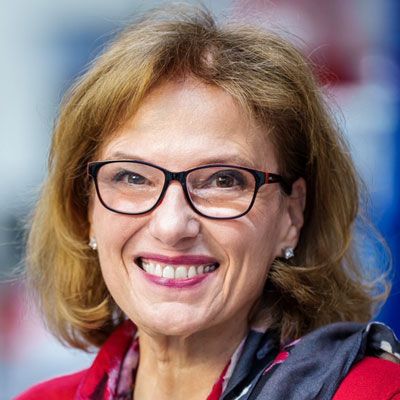

Doris Taylor, United States
Doris A. Taylor, PhD, DSc (Hon), FAHA, FACC, FESC, FAIMBE, is an internationally recognized leader in regenerative medicine and organ transplantation. In 1998, she performed the first repair of injured heart tissue using stem cells. In 2008, she led groundbreaking work in decellularization that helped launch the field of whole-organ bioengineering, offering a path toward personalized organ transplantation. Her team bioengineered the first beating heart—an advance named one of AHA’s “Top 10 Research Advances.”
Dr. Taylor later identified cellular signatures of cardiovascular disease and aging that differ by sex, race, and ethnicity, advancing precision medicine in heart failure.
Her career spans academia and industry, with faculty appointments at Duke, the University of Minnesota, Texas Heart Institute, and Texas A&M. In 2021, she founded Organamet Bio Inc., a regenerative medicine company focused on curing cardiovascular disease and expanding access to care. Her previous biotech, Miromatrix Medical Inc., was acquired in 2023.
Dr. Taylor served for nearly 20 years on the Institut de France LeFoulon-Delalande Foundation jury and was appointed to the White House panel on Biomanufacturing in 2022. She is a Fellow of the AHA, ACC, ESC, and AIMBE, and a Senior Member of the National Academy of Inventors.
A sought-after global expert, Dr. Taylor frequently speaks on topics including cell therapy, women’s health, cardiac repair, biomanufacturing, and organ transplantation.
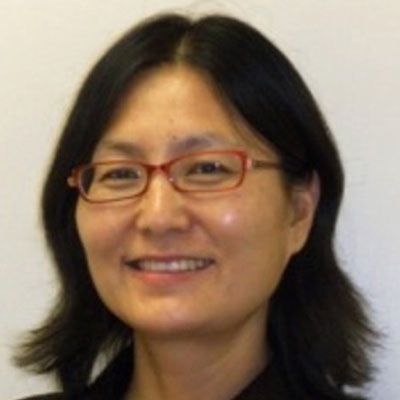

Hongjun Wang, United States
Dr. Hongjun Wang is a tenured Professor at the Medical University of South Carolina, Scientific Director of the Center for Cellular Therapy, and Associate Director of the South Carolina Clinical and Translational Research Institute Pilot and Translational Program. A leading translational scientist, she has over 20 years of experience in islet transplantation, stem cell therapy, and immune modulation, with a focus on treating diabetes and chronic pancreatitis. She has isolated over 300 human islets for transplantation and leads four NIH R01s and two VA Merit Awards. Previously on faculty at Harvard Medical School, Dr. Wang has organized and led multidisciplinary teams in four clinical trials translating cell therapy related lab discoveries to patients. She serves as Co-Chair of the Gastrointestinal Committee of International Society for Cell and Gene Therapy (ISCT), Chair elect of the Islet Development and Biology Interest Group for the American Diabetes Association. She has trained over 50 researchers and serves on multiple scientific advisory boards, editorial boards, and NIH and JDRF grant review panels. A frequent invited speaker and recognized leader in the field, Dr. Wang brings deep expertise, collaborative leadership, and a strong commitment to advancing cell transplantation science and clinical practice.
Contact
Address
Cell Transplant and Regenerative Medicine Society
c/o The Transplantation Society
740 Notre-Dame Ouest
Suite 1245
Montréal, QC, H3C 3X6
Canada


